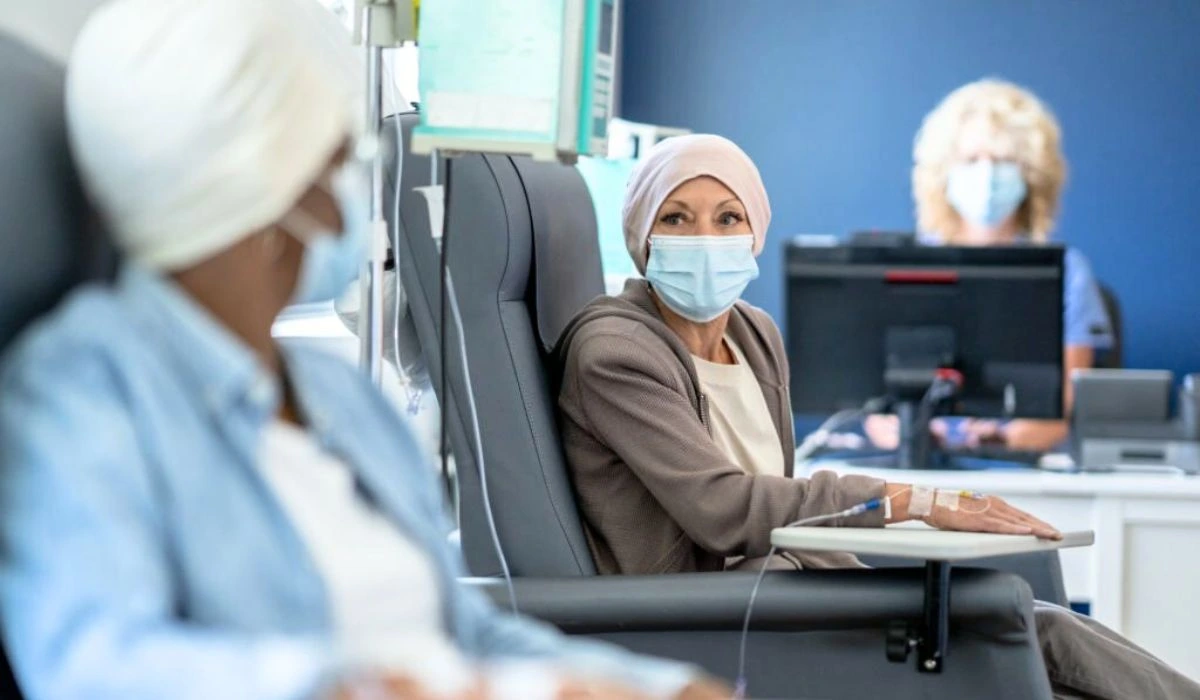Chemotherapy is a cancer treatment that uses drugs to eliminate cancer cells. It stops the growth of cancer cells, divides them, and hinders their reproduction. Chemotherapy is an effective treatment for various cancers.
In medical terms, it is often referred to as standard chemotherapy, traditional chemotherapy, or cytotoxic chemotherapy. Despite effectively treating several kinds of cancer, it has side effects that can be mild and treatable or cause severe complications.
Causes Of Chemotherapy Side Effects
Chemotherapy attacks active cells (cancer cells and healthy cells) that are developing and dividing as a component of the normal cell cycle. However, cancer cells usually grow faster than normal cells, which makes cancer cells highly vulnerable to chemotherapy attacks.

Unfortunately, normal cells, such as those in your blood, mouth, digestive system, and hair follicles, also get destroyed.
Therefore, there will be side effects when chemotherapy destroys these healthy cells. For instance, you might experience hair loss or nausea and vomiting. In most cases of chemotherapy, side effects do not reveal the effectiveness of the treatment.
Also Check: Advances In Cancer Immunotherapy: How Is It Revolutionizing Care?
How To Manage The Side Effects?
You can manage chemotherapy side effects in the following ways:
🔸 Nausea And Vomiting
You can reduce nausea and vomiting by changing your eating habits, which include eating five or six small meals instead of three big ones, not rushing your meal, drinking an hour before or after meals instead of during eating, drinking apple juice, tea, and flat ginger ale, and avoiding strong-smelling foods, including sweets, fried foods, and fatty foods.
Moreover, your doctor may recommend the best anti-nausea drugs for you. Sometimes, you may consider various medications until you find the perfect one. For instance, acupuncture is known to relieve nausea and vomiting. Furthermore, you can also reduce these side effects with relaxation techniques such as deep breathing and meditation.
🔸 Altered Taste
Specific forms of chemotherapy can affect your sense of taste. You can still cope with several strategies. For instance, if red meat tastes weird, consider poultry, mild-flavored fish, or dairy products instead. Also, if your favorite dish tastes funny, don’t eat it to avoid disliking it. If foods taste metallic, then use plastic utensils. You can add a sweet marinade for more flavor to your main dish.
🔸 Fatigue
You may feel tired, but you can manage it by resting or taking short naps during the day, taking short walks to enhance your energy, seeking assistance from family or friends when needed, and concentrating on relevant things.
If tiredness persists, consult your doctor. Moreover, some individuals may experience chemotherapy side effects like anemia and low red blood cell counts. Your doctor can test your blood and commence treatment if needed.
🔸 Chemo Brain
Some individuals experience short-term mental fog after treatment. It can be managed using a daily planner that reminds you of appointments, names, addresses, numbers, and to-do lists. Also, you can keep your brain active by taking a class, attending lectures, or trying word puzzles. Eating, exercising, and sleeping well, including concentrating on one thing at a time, are other options.
🔸 Hair Loss
Hair loss is common with some chemotherapy treatments. After chemotherapy, consider soft-bristle brushes and don’t use hair products with harsh chemicals, like hair dyes or permanents. Try to cut your hair short for a thicker and fuller texture. You can also purchase a wig in advance to better match it to your hair before hair loss.
Another option is wearing a hat or scarf in cold weather and protecting your scalp from the sun with sunscreen. Wash your tender and dry scalp (if that’s the case) with mild moisturizing shampoos and conditioners, and apply gentle lotions.
🔸 Sun Sensitivity
Most individuals may be susceptible to sunlight in the months after treatment. Avoid direct sunlight, mainly when the sun’s rays peak (between 10 a.m. and 4 p.m.). Use sunscreen like a “broad-spectrum” product with a SPF of 30 or higher and lip balm with sunscreen. Also, outdoors, wear long pants, long-sleeved shirts, and a wide-brimmed hat.
How Long Can The Side Effects Last?
Usually, the side effects are temporary, but there are cases where some are permanent. Side effects slowly reduce after treatment and healthy cells recover. Some side effects from chemotherapy that may occur for several months or years are known as late effects.
Before treatment begins, consult your doctor if you are prone to developing late effects and take preventive measures.
Read More: Personalized Medicine In Cancer Treatment: Promising Better Outcomes
Conclusion
While there are chemotherapy side effects, they can be managed. Strategies like dietary changes, medication, and self-care help address problems such as nausea, taste changes, fatigue, ‘chemo brain,’ and hair loss.
These side effects are often short-term, but some may continue as late effects. Adequate support and resilience can help people deal with the challenges of chemotherapy and improve their health.